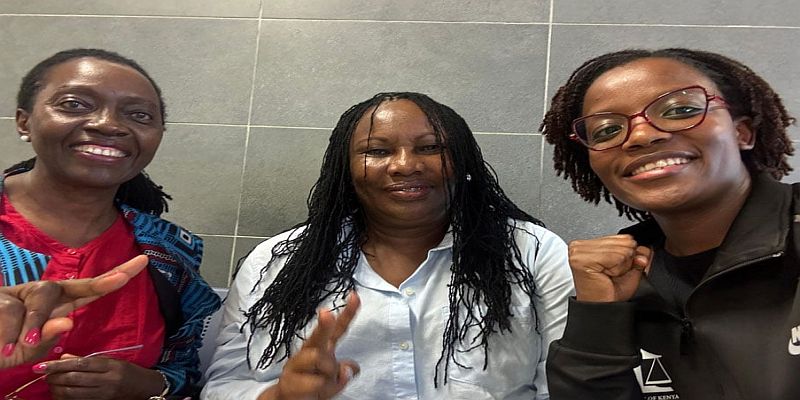Borders and Betrayals: Legal Xenophobia in the Age of Regional Pretence

1. Introduction: A Farce in the Theatre of African Integration
When regional lawyers—armed with no weapons but their robes, intellect, and moral courage—are denied entry into fellow African jurisdictions under the guise of immigration discretion or national sovereignty, the entire edifice of East African solidarity collapses into legal hypocrisy. What is law if it does not serve justice? And what is regional integration if it collapses at the footsteps of a border gate?
The recent barring of Martha Karua, Gloria Kimani, and Lyn Ngugi from observing Tundu Lissu’s trial in Tanzania echoes the shameful precedent in Uganda, where a Kenyan Senior Counsel was blocked from representing Dr. Kizza Besigye, a Ugandan opposition politician. Both actions mock the East African Community (EAC) Treaty, betray African unity, and contaminate the jurisprudential soil from which future legal norms must grow.
2. Legal Instruments Violated
A. EAC Treaty (1999)
Article 104 – Free Movement of Persons: Enshrines the right of East Africans to move freely across borders.
Article 126(2)(b) – Legal and Judicial Cooperation: Obligates partner states to harmonize legal training and promote exchange among judicial officers and legal practitioners.
Article 6(d) and 7(2) – Enshrine good governance, the rule of law, and adherence to democratic principles as fundamental objectives of the Community.
Violation: Denying entry to lawyers without legal justification violates the very foundation of regionalism, undermining mutual legal assistance and professional mobility, which are pillars of the EAC legal space.
B. Protocol on the Establishment of the East African Common Market (2010)
Article 10 – Guarantees the free movement of services, including legal services.
Violation: Legal services are explicitly recognized under this Protocol, and the movement of legal professionals is protected. Blocking lawyers from observing or participating in proceedings constitutes non-tariff barriers, which are prohibited.
C. African Charter on Human and Peoples’ Rights (ACHPR)
Article 7(1)(c) – Right to defence, including the right to be defended by counsel of one’s choice.
Article 26 – Requires states to ensure the independence of the judiciary and the profession of law.
Violation: Preventing lawyers from rendering services or observing public proceedings erodes the independence of the legal profession and infringes the accused's right to legal representation.
D. National Constitutions
Uganda’s Constitution (Art. 28 & 44) and Tanzania’s Constitution (Art. 13) guarantee the right to a fair hearing and the freedom to access justice. These are entrenched and non-derogable.
Violation: By selectively barring foreign advocates—especially where local legal actors may be intimidated, co-opted, or unable to act freely—the integrity of legal defence and trial fairness is compromised.
3. Precedent and the Kizza Besigye Incident
In Uganda, a Kenyan Senior Counsel—renowned and competent—was denied the right to represent Dr. Kizza Besigye in a politically sensitive case. The pretext? Immigration clearance. The reality? Political fear disguised as legality. This incident mirrors the Tanzanian scenario. It sets a dangerous jurisprudential precedent whereby governments weaponize immigration law to sanitize injustice.
Implication: The right to counsel of one’s choice, especially in public interest and human rights litigation, becomes illusory—a constitutional promise betrayed by administrative fiat.
4. Implications for Legal Solidarity and Pan-African Jurisprudence
Balkanization of Justice: If African lawyers cannot move freely to defend each other, how shall Africa claim legal independence from colonial-era frameworks?
Weaponization of Borders: When legal robes are treated like contraband at borders, justice becomes territorially imprisoned, and lawyers become enemies rather than partners.
Chilling Effect on Human Rights Litigation: Political regimes may adopt a template of legal isolationism, deterring international legal scrutiny and shielding abuses.
5. Jurisprudential Consequences
If these actions are normalized:
Regional Courts (e.g. EACJ) may be undermined by states acting in bad faith.
Mutual recognition of advocates under legal harmonization efforts becomes redundant.
A “Fortress State” mentality will suffocate the very spirit of ubuntu and legal fraternity, which should underpin African legal integration.
6. The Call to Legal Conscience: A Drum Major’s Final Word
Let us not be the generation that recites integration but practices segregation. Let us not permit a jurisprudence where a foreign investor’s money is more mobile than a lawyer’s voice. Regionalism without legal fraternity is an empty shell.
It is time for:
Strategic litigation before the East African Court of Justice (EACJ) to challenge these actions.
Law societies across Africa to form a continental bar coalition that monitors, names, and shames such abuses.
Amendments to national laws to remove opaque barriers to foreign legal participation in public interest cases.
Conclusion
The barring of African advocates from participating in or observing judicial proceedings in fellow African states is not a minor bureaucratic error. It is a legal insult, a regional betrayal, and a constitutional sin. It erodes public confidence in the justice system, mocks regional treaties, and delegitimizes the Pan-African dream.
Let these nations not be allowed to pretend to serve the law while they stab its very soul. We, as the legal fraternity, must be the drum majors of jurisprudential truth—beating the rhythm of unity, accountability, and legal courage.
By Isaac Christopher Lubogo
President of Optimistic International Uganda Chapter, CEO of Suigeneris Legal Legacy Incorporated with LLB, LLM, and LLD fellow.
# Suigeneris
